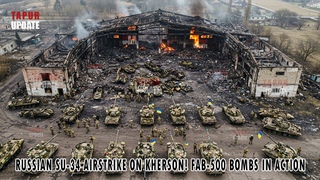Russia and China drive out French and the West in Africa
Africa has emerged as a pivotal battleground for superpower competition. The once-dominant Western and French interests in the continent are being increasingly challenged by the growing assertiveness of Russia and China. This seismic shift has been catalyzed by a confluence of factors, including strategic alliances with major African leaders, resource-driven economic partnerships, and the careful maneuvering of geopolitical influences.
Russia’s resurgence on the global stage has been accompanied by a deliberate push to strengthen its footprint in Africa. While the Soviet Union’s influence had waned over the years, Russia, under President Vladimir Putin’s leadership, has initiated a strategic recalibration to regain its former prowess. This endeavor has been particularly evident in West Africa, where Russia’s involvement has been marked by a multifaceted approach.
One of the pillars of Russia’s Africa strategy has been the cultivation of economic partnerships grounded in resource exploitation. This is exemplified by Russia’s efforts in countries like Angola and Nigeria, where energy-rich reserves have become focal points of cooperation. Through agreements centered on oil, gas, and mineral extraction, Russia has managed to establish enduring economic ties that serve as a foundation for broader influence.
Russia’s engagement in Africa extends beyond economic interests. The presence of the Wagner Group, a private military company with close ties to the Kremlin, has been a contentious aspect of Russia’s involvement. While some view it as a destabilizing force, others argue that it contributes to counterterrorism efforts and helps stabilize conflict-prone regions. This ambivalence underscores the complexity of Russia’s military endeavors in the African context.
Russia has embarked on a determined trajectory to assert itself as a new superpower in the African continent. Building upon historical ties and diplomatic outreach, Moscow’s strategic engagement is yielding tangible results that are reshaping the geopolitical landscape of Africa. This narrative explores Russia’s multifaceted approach to becoming an emerging superpower in Africa, examining the key factors driving its ascent and the implications for regional and global dynamics.
Russia’s historical connections with Africa have laid a solid foundation for its contemporary influence. Decades of cooperation during the Soviet era have fostered strong diplomatic relationships that Moscow is keen to rekindle. Through targeted diplomatic missions and high-level visits, Russia has demonstrated its commitment to reengaging with African nations, capitalizing on historical goodwill and shared experiences.
Russia’s foray into African economies has been marked by strategic economic partnerships and resource-driven collaborations. The quest for energy resources, minerals, and agricultural commodities has fueled Russia’s economic engagement, resulting in bilateral agreements that foster mutual benefit. By tapping into Africa’s rich resource base, Russia has secured a dependable stream of raw materials crucial for its domestic industries.
A notable aspect of Russia’s engagement in Africa is its emphasis on infrastructure development and technological transfer. Russian companies are actively involved in constructing critical infrastructure, such as energy facilities, railways, and telecommunications networks. These projects not only enhance African connectivity but also enable Russia to showcase its technological capabilities and cement its role as a development partner.
#russia #lineflux #africarussia #chinaafrica
#brics #bricssummit2023 #bricssummit























